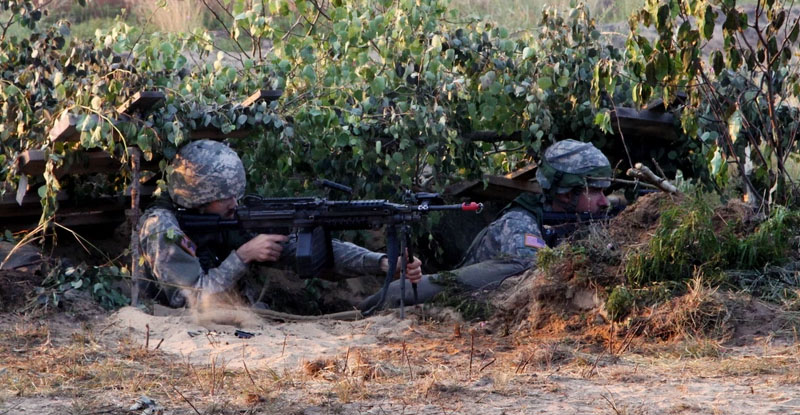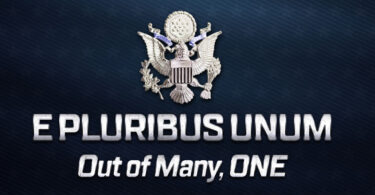By Peter Laffin
The military can and should only be judged by its ability to carry out its primary function, which is to defend and protect the interests of its country.
If it can’t effectively perform this basic task, all other potential analysis about its nature is moot.
A conquered country is incapable of concerning itself over whether or not its military adheres to the latest moral fad. That’s because a conquered country no longer exists.
This brute and simple fact underlies our politics, though we pay it little mind in times of peace.
Indeed, the global order itself depends upon the excellence with which the United States can threaten and deliver violence. This is not fair, per se, nor desirable in contrast with a hypothetical utopia in which all nations live in harmony. But it is true. And in our age of frivolity and escapism, it demands to be said and repeated.
And yet, in a bizarre string of announcements in recent years, our military has made headlines for reasons other than to update its capacity to overwhelm potential enemies with lethal violence.
In June of 2021, for instance, Army Gen. Mark Milley, who is the chairman of the Joint Chiefs of Staff, made news by proclaiming his desire to understand “white rage” in a defense of a course offered by the U.S. Military Academy that explicitly trains cadets in critical race theory.
In 2022, the Army announced its strategy to combat climate change by building a fleet of hybrid tactical vehicles — because, apparently, our efforts to kill or subdue our enemies only count if they are carbon neutral.
And in his most recent defense budget, President Joe Biden requested roughly $150 million for military diversity, equity, and inclusion initiatives.
Meanwhile, China continues to build up its military capabilities at a dizzying rate. Its hypersonic missiles currently outpace American capabilities and defenses, and Chinese officials reportedly believe they could destroy our fleet “with certainty” following war-game simulations in the South China Sea. China has also recently established a multi-billion dollar spy base in Havana and massively expanded its nuclear arsenal.
In addition to buttressing China’s hard power, President Xi Jinping has committed to a policy of aggressively advancing Chinese interests abroad.
For example, China has recently inserted itself into the Russia-Ukraine conflict as the key broker, forged an unlikely detente between Saudi Arabia and Iran, and developed close political and economic ties with the Brazilian regime. These developments and more signal that China intends to supplant the U.S. as the dominant global power. Xi made this plain when he reveled in the possibility alongside Russian President Vladimir Putin in March: “Right now there are changes, the likes of which we haven’t seen for 100 years, and we are the ones driving these changes together,” he told Putin in front of cameras at the Kremlin.
Which leads us to Pride Month at the Pentagon.
It is necessary to say that the military’s evolving policy on homosexual and trans inclusion is not the issue here. An individual soldier should only be judged by their ability to help the military achieve its primary function. Just as it doesn’t matter whether or not the tank is environmentally friendly, it neither matters who a tank gunner finds sexually attractive — so long as he hits the target.
Instead, the problem is that precious resources are being spent on initiatives that have nothing to do with preserving the security and freedom of the nation in the face of the China threat.
Some will counter that DEI spending is necessary because “our diversity is our strength.” This is perhaps true in a moral sense (though even the New York Times is beginning to admit that the DEI industrial complex does more harm than good).
But in a military sense, is diversity really a greater source of strength than the quality of our hypersonic missiles?
This is where the American public begins to lose its patience with the “woke military.”
China is on the march, and the sense that our best days are over pervades our discourse. We don’t have time for this.
And yet, the DEI revolution seems to be at the top of our military’s list of priorities.
Prominent foreign policy scholar Walter Russell Mead recently remarked that “the fact that we and our allies allowed ourselves to go from a position of overwhelming superiority to one of contested superiority will rank historically as one of the great examples of human folly and blindness. On the day of judgment, Neville Chamberlain will rise and condemn the weakness and stupidity of this generation.”
The least our government leaders can do in the face of these harrowing challenges is cut the virtue signaling. It is tedious and depressing — it instills the opposite of hope.
I sometimes wonder if that’s the point.
Peter Laffin is a contributor at the Washington Examiner and the founder of Crush the College Essay. His work has also appeared in RealClearPolitics, the Catholic Thing, the National Catholic Register, and the American Spectator.








Leave a Comment